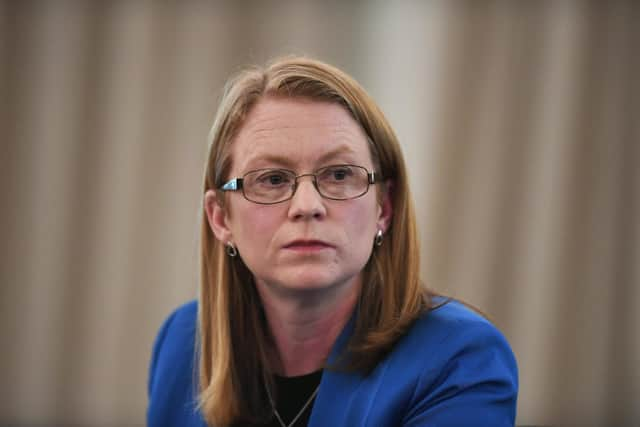Alcohol advertising ban: Scottish education secretary pledges fair hearing for event organisers on alcohol advertising curbs
Shirley-Anne Somerville has insisted decisions on possible restrictions will not simply be taken “through a public health lens”.
She said the government recognised the arts and culture sector had been through the “toughest time imaginable” since the start of the Covid pandemic.
Advertisement
Hide AdAdvertisement
Hide AdAnd Ms Somerville insisted the government would also be taking into account the fact that many event organisers had long-term commercial partnerships in place.


The government has come under growing criticism since the launch of an official XXXXXXXXXX over possible measures to tackle alcohol-related harm, which it describes as one of Scotland’s “most pressing public health challenges."
The government has cited growing international evidence that seeing alcohol marketing is linked with “an increased likelihood that children and young people will start to drink alcohol or, if they already drink alcohol, drink more”.
The Edinburgh Festival Fringe, the Tattoo, TRNSMT and DF Concerts' Summer Sessions events are all named in the official government consultation.
However the consultation paper admits there has been no research into the “extent and impact” of alcohol sponsorship of non-sporting events in Scotland.
Ms Somerville said: “It is very important that the government takes issues around alcohol and alcohol consumption very seriously.
"But it is also important that we do that responsibly and we listen to all stakeholders.
Advertisement
Hide AdAdvertisement
Hide Ad“It is important that children and young people learn about the responsibilities about drinking and the harms that alcohol can have.
"Clearly there is a role for that within education, but we also have to think about what happens outwith education and how children and young people may view alcohol by what happens around them in wider society. That’s a very important aspect that we need to look at.
“But we also want to make sure that we understand the consequences of any decisions that the government can take.
“It is important that the voices of event organisers are heard before any decisions are taken.
“We need to understand the implications of any policy decisions and also the time it takes event organisers to build up sponsor relations and develop programmes.
“This is not simply being looked at through a public health lens, it will also be about the impacts that changes would have on the events, culture and tourism.
“This kind of thing has happened in other countries and there are some things we can learn, but clearly there are unique aspects in Scotland, particularly the whisky tourism industry, and the fantastic events that we have here.
Advertisement
Hide AdAdvertisement
Hide Ad“We have a group of people who have worked tremendously hard to ensure Scotland is world-leading when it comes to events. We have to bear in mind that they’ve gone through the toughest years imaginable.
"It’s very important that we try to do this as much as possible together, and listen to children and young people, and what they feel is the impact on them, but it is also very important that we develop these policies in a way that truly appreciates the difficult times people have just gone through and what may happen in future if we were to get the policy wrong.”
Comments
Want to join the conversation? Please or to comment on this article.
